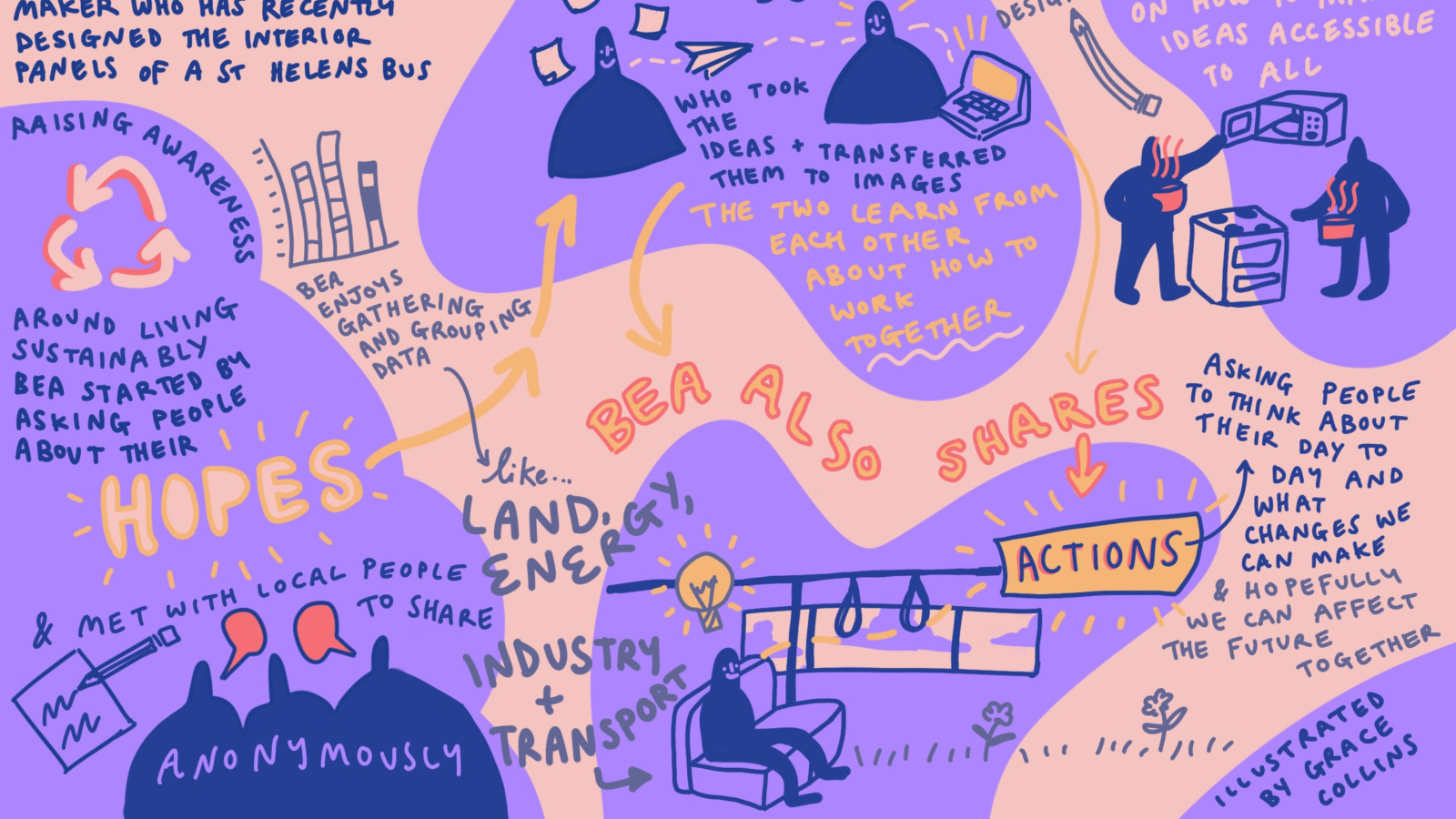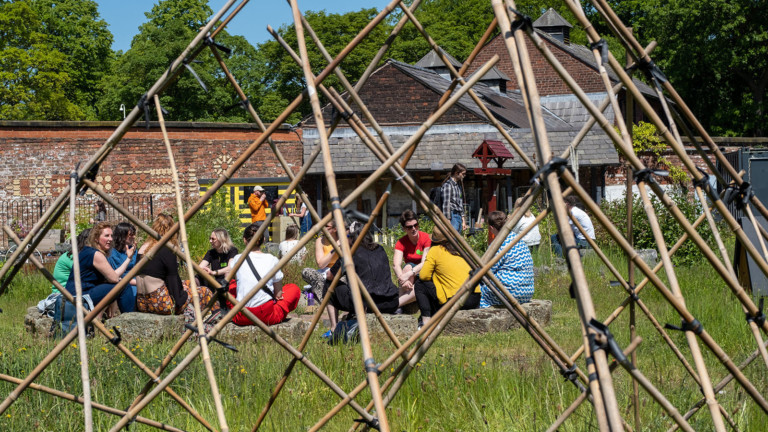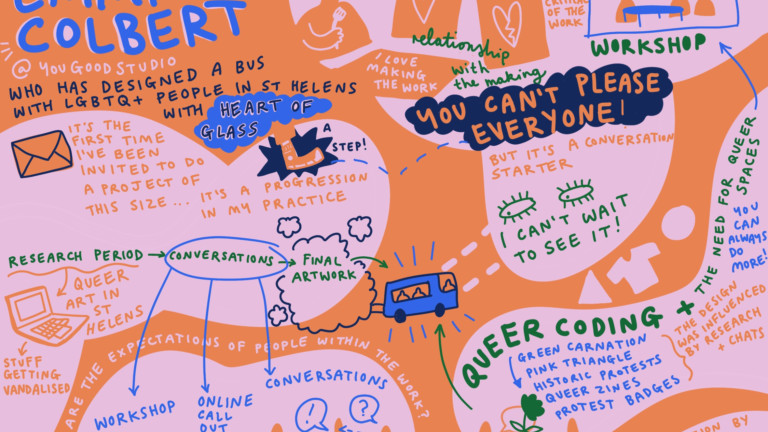Bea Albanese is a writer, performer, poet and actor, but her recent Heart of Glass commission is the first purely visual artwork she’s worked on.
An associate at Homotopia first recommended that Bea apply for the open call, which invited artists to design interior panels for local St Helens buses. For this project, Bea collaborated with artist Leo Welton to highlight how individual actions can positively affect the future of our environment.
Bea began by asking local people (in groups such as Artists Together) to share their hopes for the future, before writing corresponding prompts to promote action. Keeping participants’ input anonymous allowed the artists to be creative in editing the suggested actions and ensure that the prompts were as accessible as possible.
"I couldn't produce panels that were all about fundamental systematic changes that need to happen. Things like getting in contact with a local councillor or joining a local charity or community group that looks after a green space. There will be people that either literally can't access those because they don't have the capacity, or those things aren't there in our local areas. I wanted to show that it wasn't just about telling someone else to do something. We're all responsible as individuals for protecting the planet and our environments."
This responsibility isn’t just to benefit our environment. Turning off electrical items on standby also saves us money on our electricity bills as the cost of living rises. Conversations with Heart of Glass helped Bea to consider how to make the project more accessible to more people.
"I hadn't thought about the fact that some people might not have access to an oven, but they might have a microwave. It was really good for Heart of Glass to throw ideas in, because climate change is indiscriminate. It affects people from lower economic backgrounds and marginalised groups more, because you don't have the resources to protect yourself from climate changes."
Bea lives by a zero waste practice in her own life, avoiding single use packaging and recycling, repurposing or composting everything she uses. She adds that this project has been a useful tool for personal reflection.
"Sometimes it's kinder to myself to accept that something is unlikely to serve a helpful purpose to me. I could use it for something but I don't have to. This project has helped me with that. I find it easier to be kind to other people, rather than be kind to myself. Trying to help others has helped me to help myself."
An artist’s love for the work they do can provide the motivation and resilience to manage difficult working conditions, though this also leaves workers open to exploitation. Blurring the line between the personal and the professional can make it hard to create healthy boundaries around work, as Bea says:
"I only recently left my job to be a freelance artist full time and there's been a big learning curve. How do you have a routine? How do you work from home in a healthy way? How do you manage creativity? I started off with the best of intentions, like logging whenever I’d be working on this project, but you start thinking about it when you're brushing your teeth, or when you lie in bed and it gets hard to keep track. It's interesting being an artist trying to get by and value the need to survive, as well as doing what you care about and love. But that's why it's important we talk about it. No one teaches these things in school. So we do our own exploration. We are explorers trying to discover how to survive in this wilderness of capitalism."
More information about Bea's commission will be available on the Heart of Glass website soon.


 On Now
On Now
 Thought
Thought Long Read
Long Read